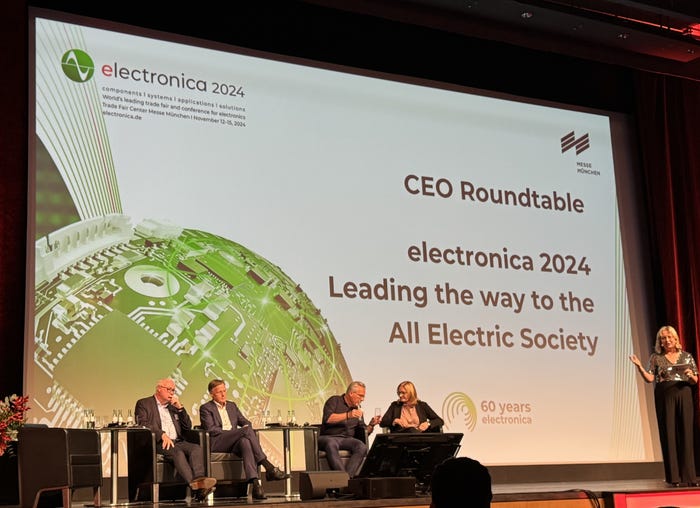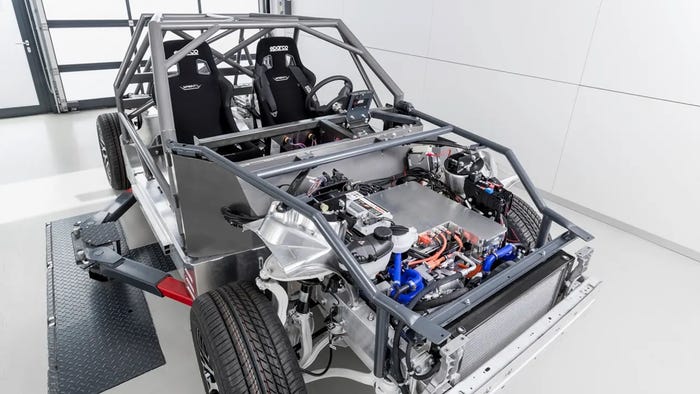
Car Pros began 31 years ago as a small mom-and-pop used-car lot south of Seattle. It’s now a megadealer operation.
Together, CEO Matthew Phillips and his parents and dealership co-founders, Ken and Robin Phillips, have built that shop into a dealership group with more than 700 employees and nine stores representing Kia, Hyundai, Honda, BMW and Mini in Western Washington and Southern California.
Car Pros collectively sells more than 25,000 cars per year with annual sales of over $1 billion. It currently ranks as the top Kia U.S. retailer, having sold more than 175,000 new vehicles for the South Korean brand since 2001
Phillips draws from his finance background and organizational psychology studies to form a management style that is both performance-driven yet empathic to customers and employees alike. His business has won an award for diversity efforts.
In a WardsAuto interview, Phillips talks about what makes his organization tick. Here’s an edited version of the Q&A.
WardsAuto: It all started as a two-staffer used-car lot?
Phillips: The two were my mom and dad. I washed cars there on weekends as a kid. They grew it to a nice-sized used-car operation.
In 1999, right after I got out of college, we got our first new-car dealership, a Hyundai store in an old gas station in Lacy, WA (pop. 53,526).
At the time, Hyundai was a great opportunity because a lot of dealers weren’t paying attention to their Hyundai dealerships. We had no other new-vehicle option than to sell Hyundais. So, we went in with a lot of drive and focus. Ours became one of the top 10 Hyundai dealerships in the nation even though it was in a small town.
In 2001, we got a Kia store in Tacoma and continued to make it from there.
Our Kia store was No.1 for many years. In 2004, we expanded into Southern California with Kia stores. Five years ago, my dad stepped back and I took over the business.
WardsAuto: When you got your Hyundai store in 1999, that brand was in trouble in the U.S. because of falling sales. There was talk back then that it might even leave the American market.
Phillips: That’s right. Hyundai was not a regionally popular brand at that time. But the brand has grown. So has (sister brand) Kia. It’s an amazing OEM to do business with.
WardsAuto: When you were washing cars at your folks’ used-car lot, did you envision becoming a dealer one day?
Phillips: I envisioned then that I wanted to do anything but work at a car lot when I grew up. But automotive has so much opportunity and is so interesting. I’m glad I got sucked back in. It’s a great industry.
WardsAuto: How’d you get sucked back in?
Phillips: I had moved to Florida. My undergraduate studies were in finance and accounting, so I was working in that field. My mom ran the business side of the original car lot. When she had back surgery, I came back as a fill-in. I never left.
WardsAuto: Your educational background is impressive, including two Ivy League schools, Cornell and Columbia.
Phillips: I did an executive MBA program at Cornell when I turned 40. I call it my midlife crisis MBA. But it’s a great program. I learned a lot from it.
A couple of years ago, I enrolled in an organizational psychology program at Columbia. That’s the No.1 thing in car dealerships right now: learning to adjust to change, being nimble. We don’t know what the future holds. But we do know it will be different. The most successful dealerships will build flexibility into their cultures and processes. Get people to feel comfortable with – and buy into – change.
WardsAuto: Getting people to buy into change can seem harder than it sounds.
Phillips: It turns out the big secret is listening to them. We’ve gotten better at that. When we implement changes, we get a lot of opinions and a lot of people involved. In the past, that might have seemed inefficient. But in the fullness of time, it’s more efficient because you get that buy-in.
WardsAuto: Organizational psychology sounds a lot like behavioral modification psychology which relies more on positive rather than negative reinforcement. The basis of it is that you get better results from catching people doing something right more than catching them doing something wrong.
Phillips: Absolutely. That’s one of the things we’re about. We have high standards, but a lot of people think high standards mean you must be mean. You don’t.
WardsAuto: What high standards are there in terms of vehicle sales?
Phillips: Part of it is, we’re transparent with the expectations of the staff. They’re clear. You know what’s expected of you. And we can hopefully help if you’re struggling. Sometimes someone is not a good fit. But you can be high performing yet still be positive. It doesn’t have to be yelling at people.
WardsAuto: Your stores are high volume. What’s your secret?
Phillips: Good people and strong processes. We’re people-focused in believing it’s important to take care of our employees and our customers.
WardsAuto: How do you do that specifically, though? Because most people say they do that.
Phillips: We focus on employee development. Almost all our managers have moved up from within the organization. Very few are from the outside.
Developing people’s career growth and providing internal opportunities have been important to us.
Also, we have continuity in processes.
WardsAuto: Are you talking about the traditional step-selling succession of meet and greet, walkaround, test drive, ask for the sale? Things like that?
Phillips: It’s evolved. There are still those steps. But it’s important to do them in whatever order the customer wants. Don’t force them into a customer journey they don’t want to take.
WardsAuto: So, the old model is passé?
Phillips: It’s evolved.
WardsAuto: How would you describe the identity of your stores?
Phillips: We like to have a big vision but achieve it in small increments.
Once we hit an achievable benchmark, we never look back.
We try to make sure every customer who comes in leaves in a new car and is happy. We’re a high-volume organization. That’s our identity.
WardsAuto: Do you price to sell?
Phillips: It’s a competitive market. You must be price sensitive. But you also compete on service, value, being honest, transparent and making customers feel comfortable.
WardsAuto: You’ve won recognition for your diversity efforts. No one seemingly opposes workplace diversity. But what does it take to accomplish it?
Phillips: Because our customers are all different types of people, we need to have different types of people working for our organization at all levels and make sure they are successful.
WardsAuto: What’s the diversity makeup of your staff?
Phillips: It includes people of different genders, ethnic backgrounds, sexual orientations and socio-ethnic backgrounds.
It also includes different education levels. We have a number of people who don’t have college degrees. It’s exciting to provide a path for them to be successful and provide for their families.
The more we have different voices, opinions and backgrounds in the room when we make decisions, the more those decisions resonate with our customers. Without the input, you run the risk of having big blind spots. I see diversity as a business imperative. We don’t focus on diversity for diversity’s sake.
About the Author
You May Also Like





